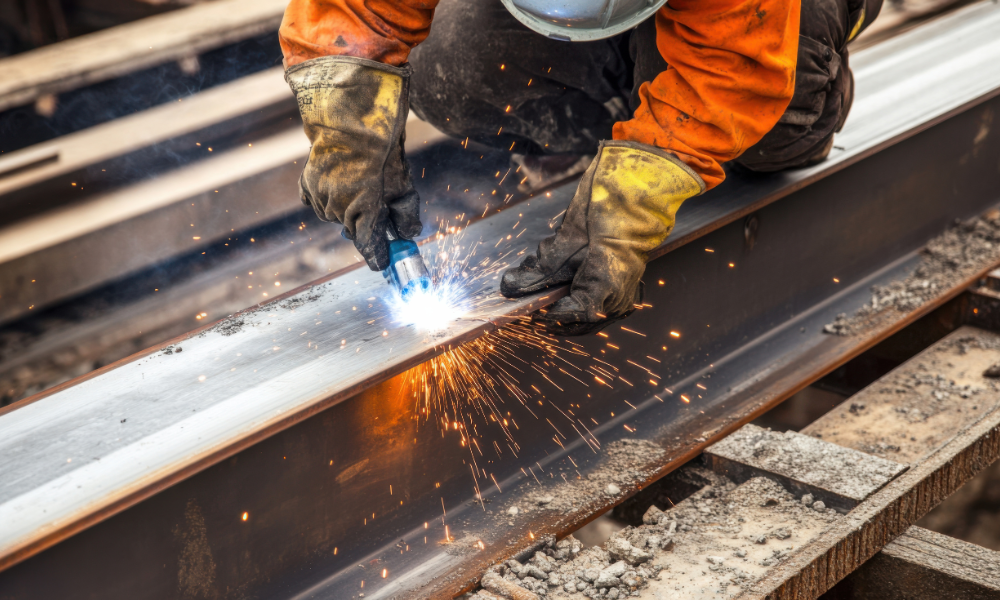Two-thirds of dumped steel avoids new trade limits, exposing Canadian producers to unfair competition

Two-thirds of dumped steel imports into Canada remain untouched under the federal government’s new tariff-rate quota (TRQ) framework, according to the United Steelworkers (USW), which warns the policy leaves Canadian producers and workers exposed to unfair competition.
The union said the June 19, TRQ plan caps imports from non-free trade agreement (non-FTA) countries at 2024 levels, but excludes the majority of imports from scrutiny—including steel from South Korea and Vietnam, both of which have been repeatedly cited in Canadian anti-dumping and countervailing duty rulings.
“The tariff-rate quota is too narrow. It locks in high levels of dumped steel and doesn’t cover some of the worst offenders,” said Marty Warren, USW’s national director.
Canada imported 8.33 million metric tonnes (MMT) of steel in 2024.
After subtracting the 900,000 tonnes not produced domestically, the union said 65 percent of those imports came from FTA countries and just 35 percent from non-FTA sources.
South Korea ranked as the third-largest source of imports in 2024 with 630,000 tonnes, and second-largest in both 2023 and 2022.
Vietnam exported over 100,000 tonnes in 2023 and 320,000 tonnes in 2022.
In its release, USW argued that the TRQ design effectively grants a 20 percent tariff-free market share to non-FTA countries, assuming Canadian demand remains around 14 MMT in 2025.
“Baking in or freezing in low-priced, cheap and carbon-intensive imports is not beneficial to Canadian steelworkers or the future of the Canadian steel industry,” the union said.
The union noted that the benefits of the TRQ plan only materialize under strict and unlikely conditions: frozen import levels, increased Canadian demand, high out-of-quota tariffs, and Canadian producers displacing FTA imports.
In the absence of these, the framework offers little immediate protection. “Jobs are already being lost and more are at risk every day,” Warren said. “The government’s plan is a start, but it’s inadequate to meet the scale of this crisis.”
The USW urged the federal government to impose TRQs on FTA countries with repeated violations, particularly South Korea and Vietnam.
It also proposed making TRQs on non-FTA countries more restrictive over time to support import substitution by Canadian producers, not just control sudden surges.
The union also expressed concern about delayed enforcement.
While USW welcomed tariffs on Chinese steel and aluminum based on “melt-and-pour” and “smelt-and-cast” origin rules—long-standing union demands—it said enforcement details remain vague. “Waiting another month for countermeasures will deepen the damage,” said Warren.
“We cannot overstate the potentially dire and irreversible consequences facing our Canadian steel and aluminum sectors and the thousands of workers whose jobs are at risk.”
USW added that Canada’s reciprocal procurement approach fails to guarantee job protection or domestic market share without clear rules.
It called for immediate worker support and stronger procurement measures prioritizing Canadian-made products.
“The United Steelworkers will continue to press the federal government to strengthen this framework and deliver the fairer, more effective response Canadian workers deserve. Canadian jobs are on the line — and half-measures won’t cut it,” Warren concluded.



